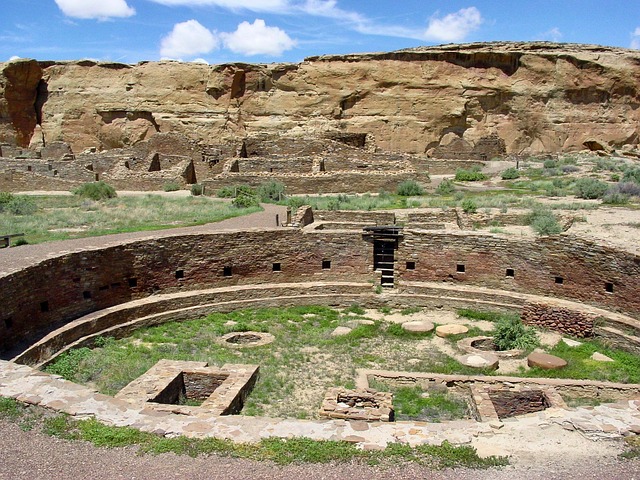Nebraska and New Mexico have strict do-not-call laws protecting residents from unwanted telemarketing calls, including spam texts. Nebraskans can request exclusion from marketing calls, and violations result in penalties. In the digital era, automated text messages raise legal concerns, with lawyers witnessing an increase in cases related to unwanted text messages. Consumers in both states have tools to combat spam texts, with reporting persistent violators recommended. Engaging spam texts lawyers in New Mexico offers guidance for protecting rights and taking action against repeat offenders. Marketers must respect consumer choices and comply with state laws to avoid legal issues.
In Nebraska, telemarketers are bound by strict ‘Do Not Call’ laws, mandating respect for consumer choices. This article delves into the legal intricacies of these regulations, examining their impact on telemarketing practices, especially regarding spam texts. We explore the rights of consumers in New Mexico to file complaints against violators and the consequences for telemarketers, including penalties enforced by local lawyers. Additionally, we highlight best practices for ethical telemarketing that foster consumer trust.
Understanding Nebraska's Do Not Call Laws: A Legal Perspective

In Nebraska, telemarketers are subject to strict do-not-call laws designed to protect residents from unwanted sales calls and spam texts. These regulations are enforced by the Nebraska Public Service Commission (PSC), which oversees communication services in the state. Understanding these laws is crucial for both telemarketers and consumers alike, as violations can result in significant penalties.
Nebraskans have the right to request exclusion from marketing calls, and such requests must be honored by telemarketers under penalty of law. This includes not only telephone calls but also spam texts. If you find yourself receiving unwanted contact from telemarketers or have any concerns regarding do-not-call rights, consulting with a lawyer specializing in New Mexico telecommunications laws can provide clarity and ensure your legal protections are understood and respected.
The Role of Spam Texts in Telemarketing Practices

In the digital age, telemarketing has evolved, and so have the strategies employed by marketers. While traditional phone calls remain a common tactic, the rise of automated text messages, or spam texts, has become an increasingly prevalent method for reaching potential customers. These unsolicited messages, often promoting products or services, can be a nuisance to recipients, especially when they violate do-not-call requests. In Nebraska, as in many other states, consumers have the right to opt-out of receiving such spam texts, and telemarketers must adhere to these regulations to avoid legal repercussions.
Lawyers in New Mexico and across the country are increasingly seeing cases involving unwanted text messages. As a result, telemarketing companies must be mindful of the laws governing do-not-call lists and customer consent. The use of spam texts can lead to not only consumer frustration but also significant fines for businesses that fail to respect these regulations. Therefore, it’s crucial for telemarketers to ensure they have proper opt-out mechanisms in place and honor individual preferences to avoid potential legal issues.
Rights of Consumers: How to File a Complaint in New Mexico

In Nebraska, consumers have the right to make “do not call” requests to stop unwanted telemarketing calls and messages, including spam texts. If a telemarketer ignores your request, it’s important to know your rights and options. New Mexico residents who face persistent spam texts or illegal telemarketing practices can file a complaint with their state’s Attorney General’s Office or consumer protection agency.
Engaging the services of experienced lawyers in New Mexico specializing in consumer rights can be beneficial when dealing with such issues. These legal professionals are equipped to guide consumers through the process, ensuring their rights are protected and appropriate action is taken against violators. By reaching out to these experts, individuals can take a proactive step towards curbing spam texts and maintaining control over their communication preferences.
Consequences for Telemarketers: Penalties and Enforcement

Telemarketers who ignore “do not call” requests in Nebraska face significant consequences, including penalties and legal action. These strict regulations are in place to protect residents from unwanted sales calls, often considered intrusive and disruptive. If a telemarketer persists despite a registered “do not call” status, they risk facing fines and other legal repercussions.
In New Mexico, as well, telemarketing practices are closely regulated, with strict laws against spam texts and unsolicited calls. Residents can file complaints with the state’s Attorney General’s office, which takes these matters seriously. Lawyers specializing in consumer protection often assist those affected by such violations, ensuring that companies adhere to the law and respect individual privacy rights.
Best Practices for Ethical Telemarketing: Respecting Consumer Choices

In the realm of telemarketing, respecting consumer choices is paramount to maintaining ethical business practices. One of the best practices for marketers in Nebraska is adhering strictly to “do not call” requests. If a customer has opted-out of receiving calls, it’s crucial to honor this decision and refrain from making any further spam texts or phone calls. This shows respect for the consumer’s privacy rights and preferences.
Moreover, staying compliant with state laws, such as those in New Mexico regarding telemarketing practices, is essential to avoid legal repercussions. Marketers should ensure they have proper consent before initiating calls and provide clear opt-out options at all times. By implementing these ethical guidelines, businesses can foster trust with their customers, preventing potential disputes that might involve seeking counsel from lawyers.






